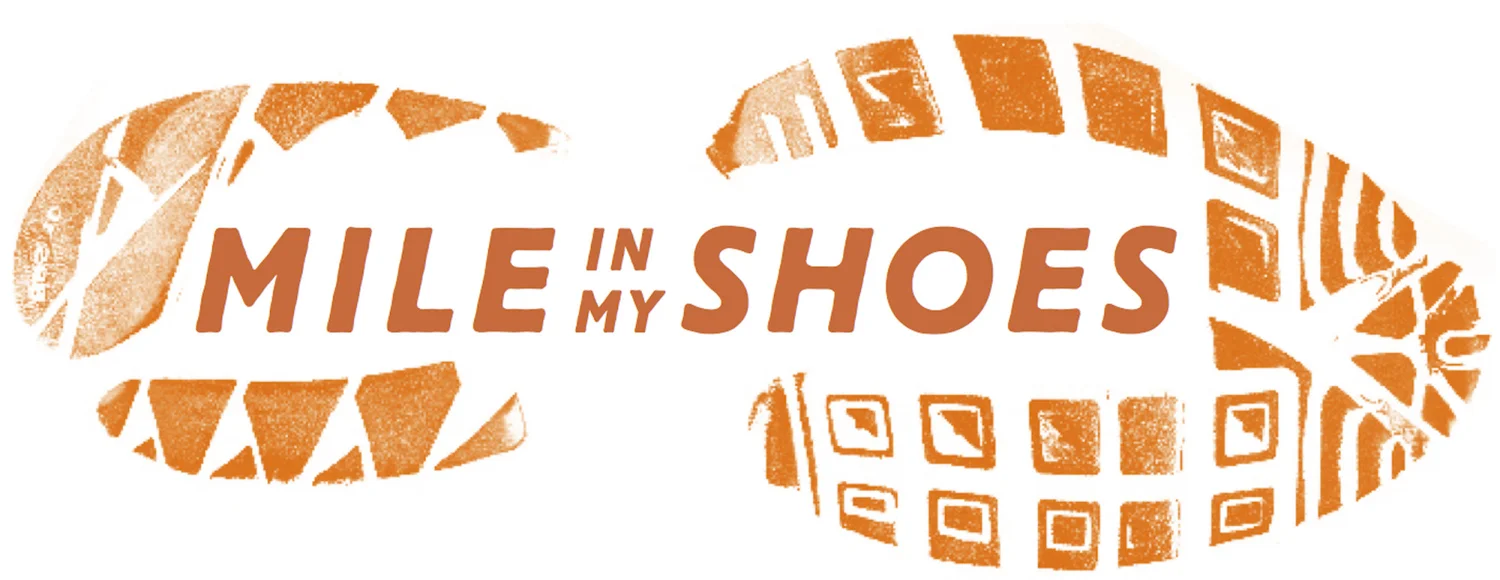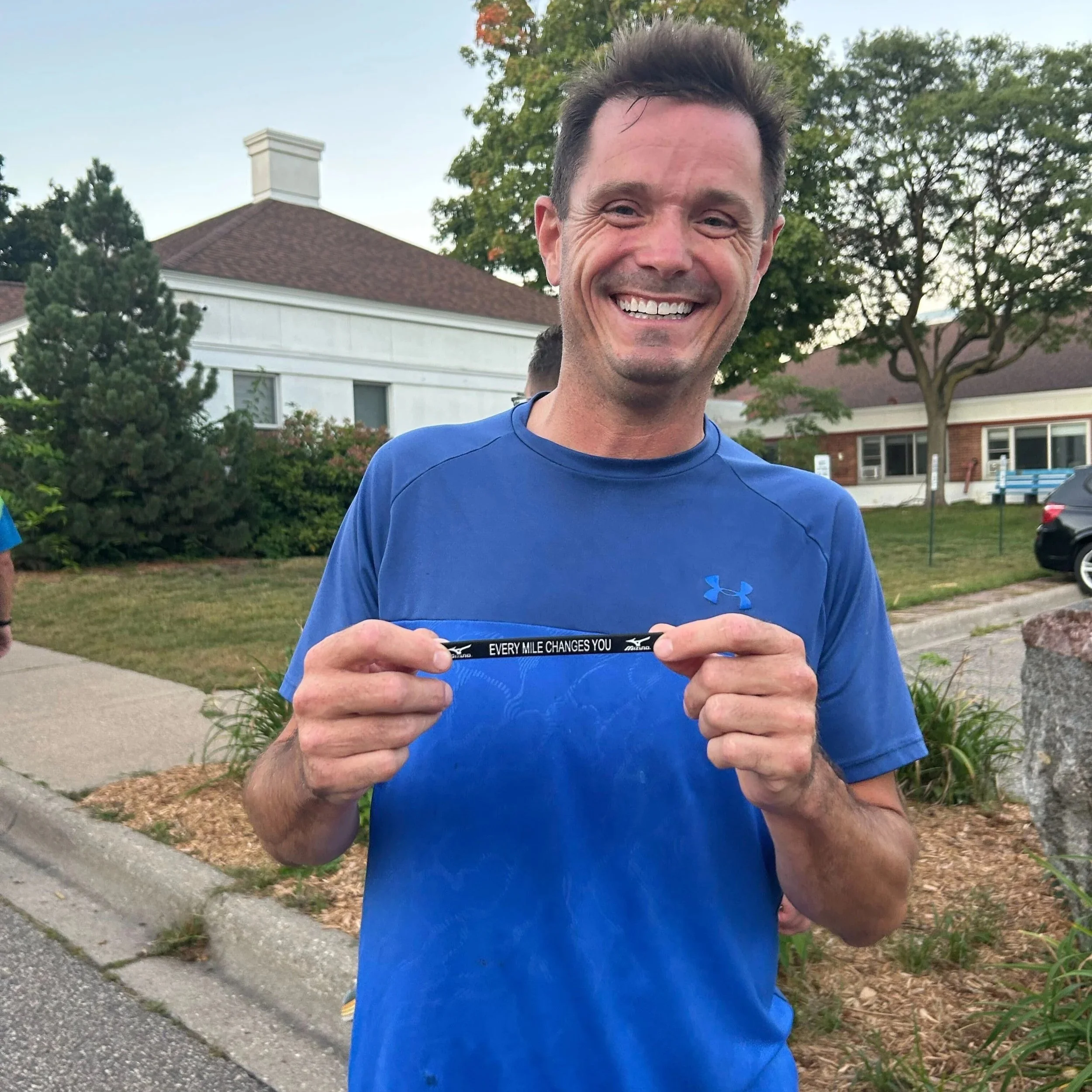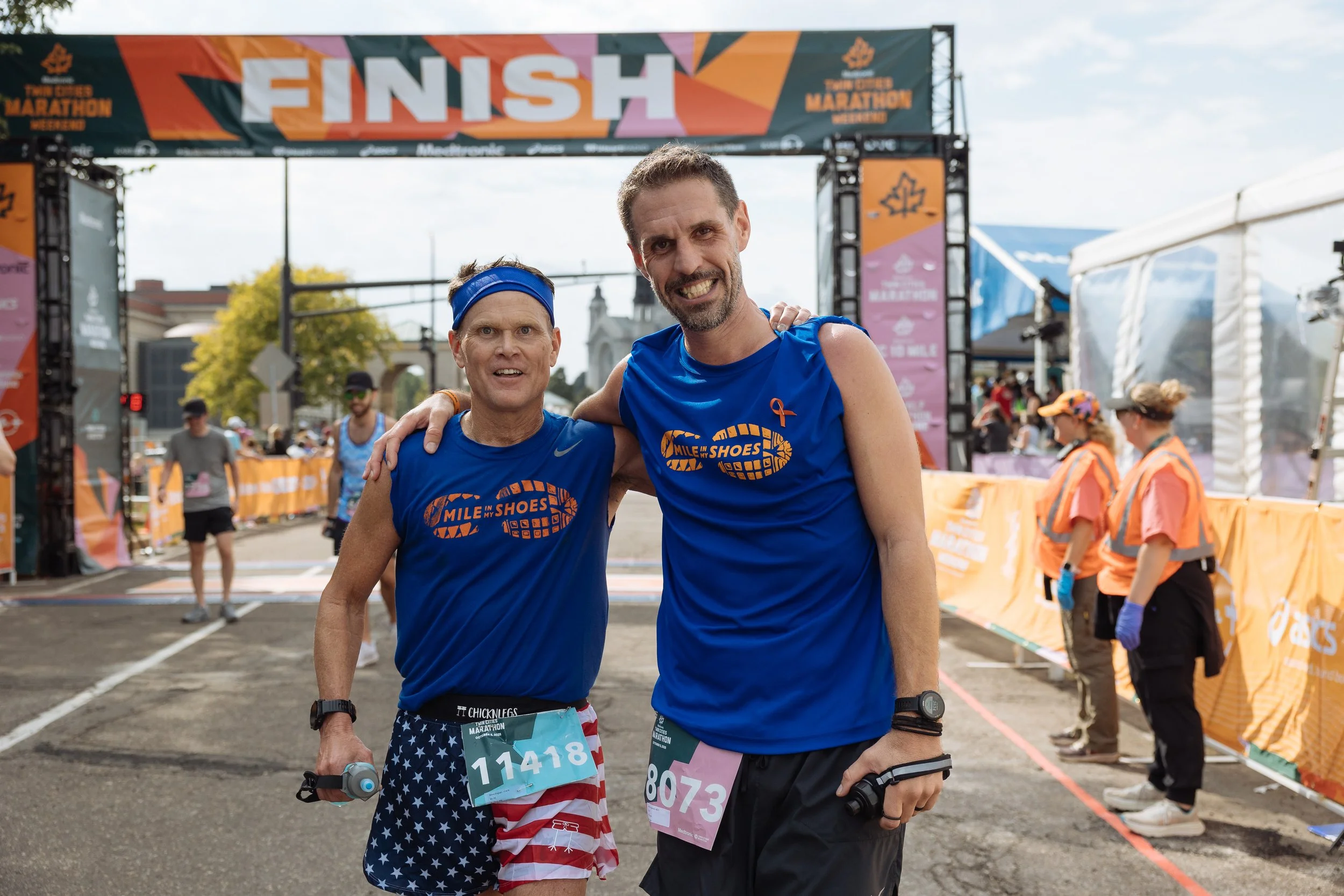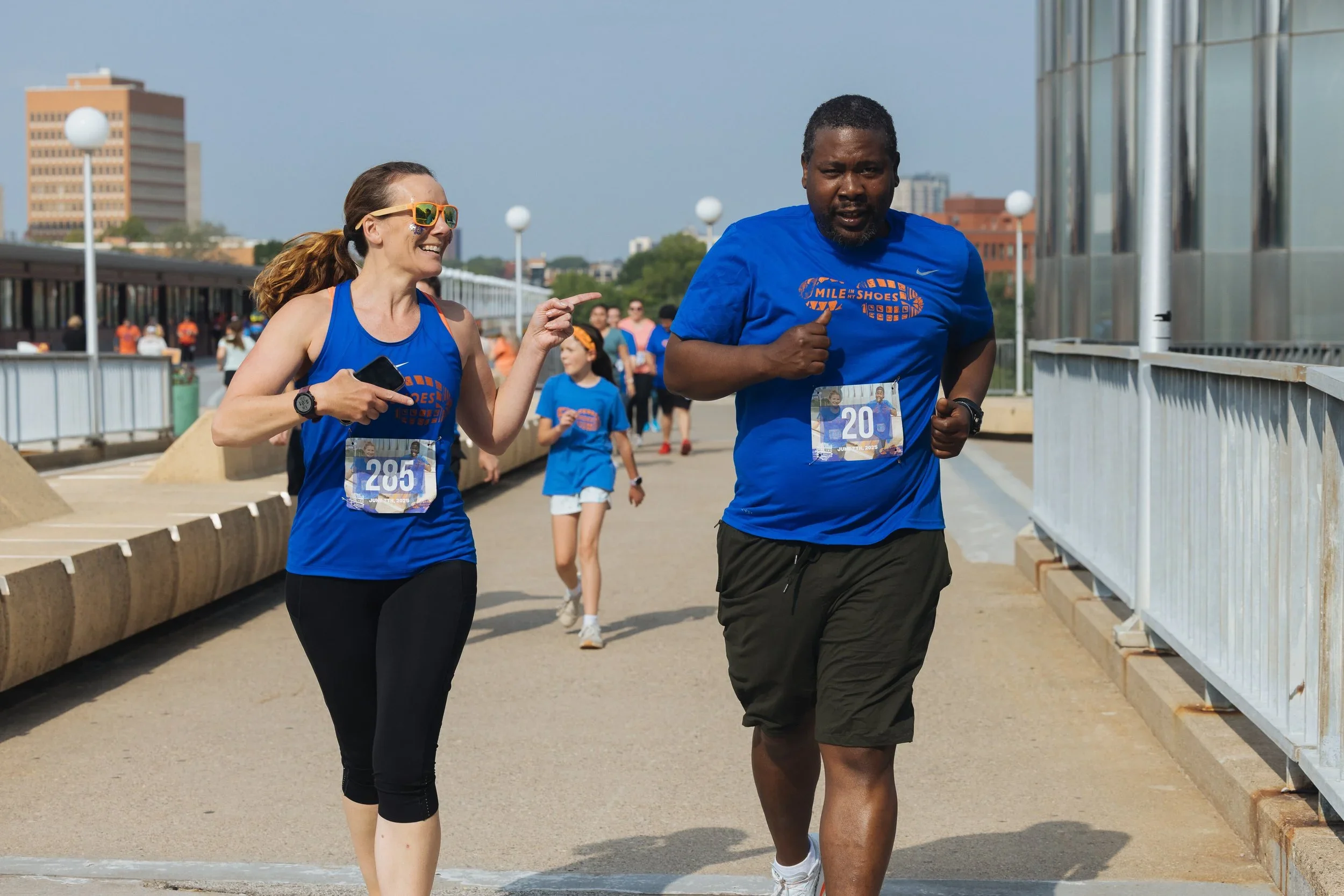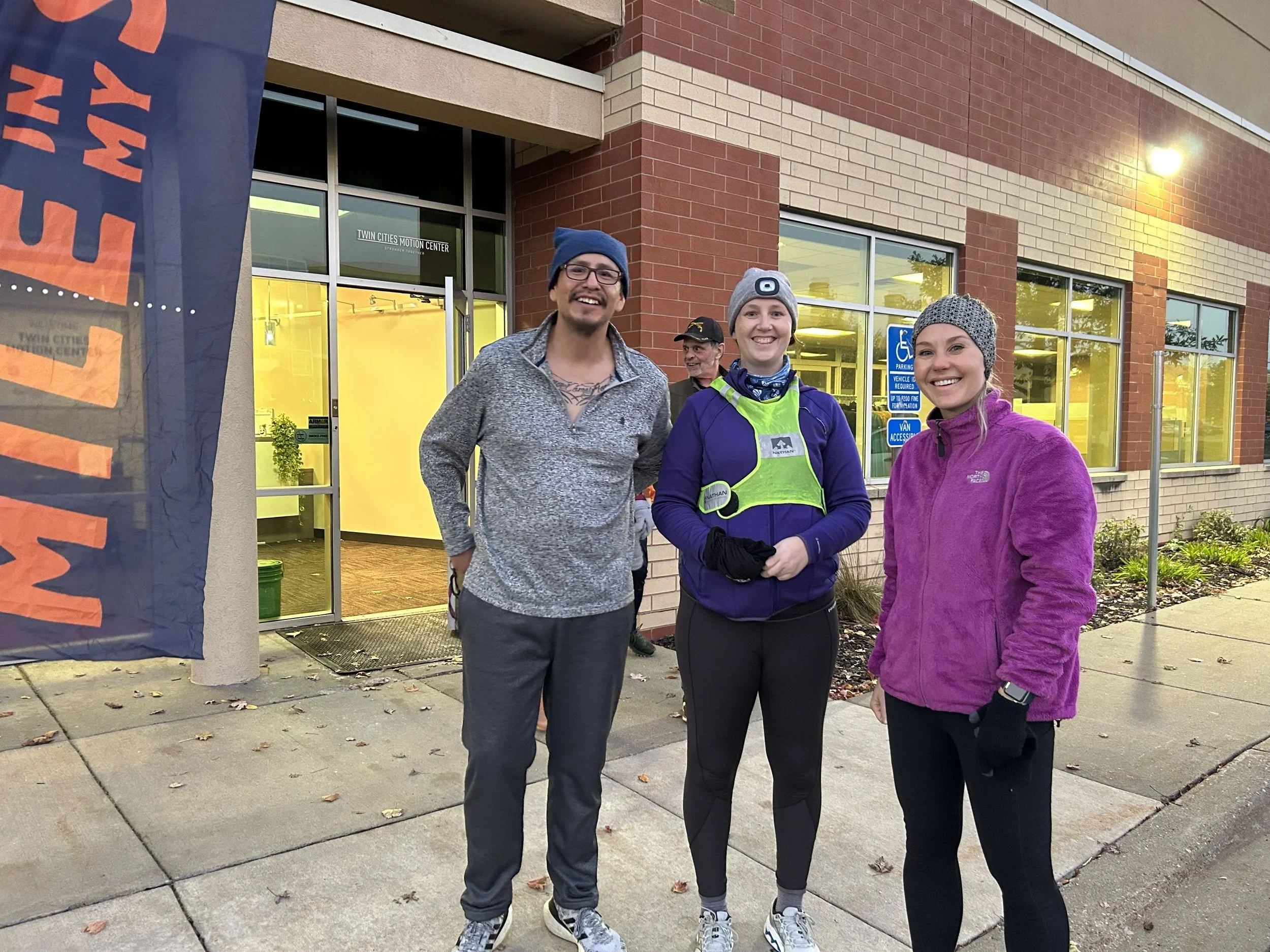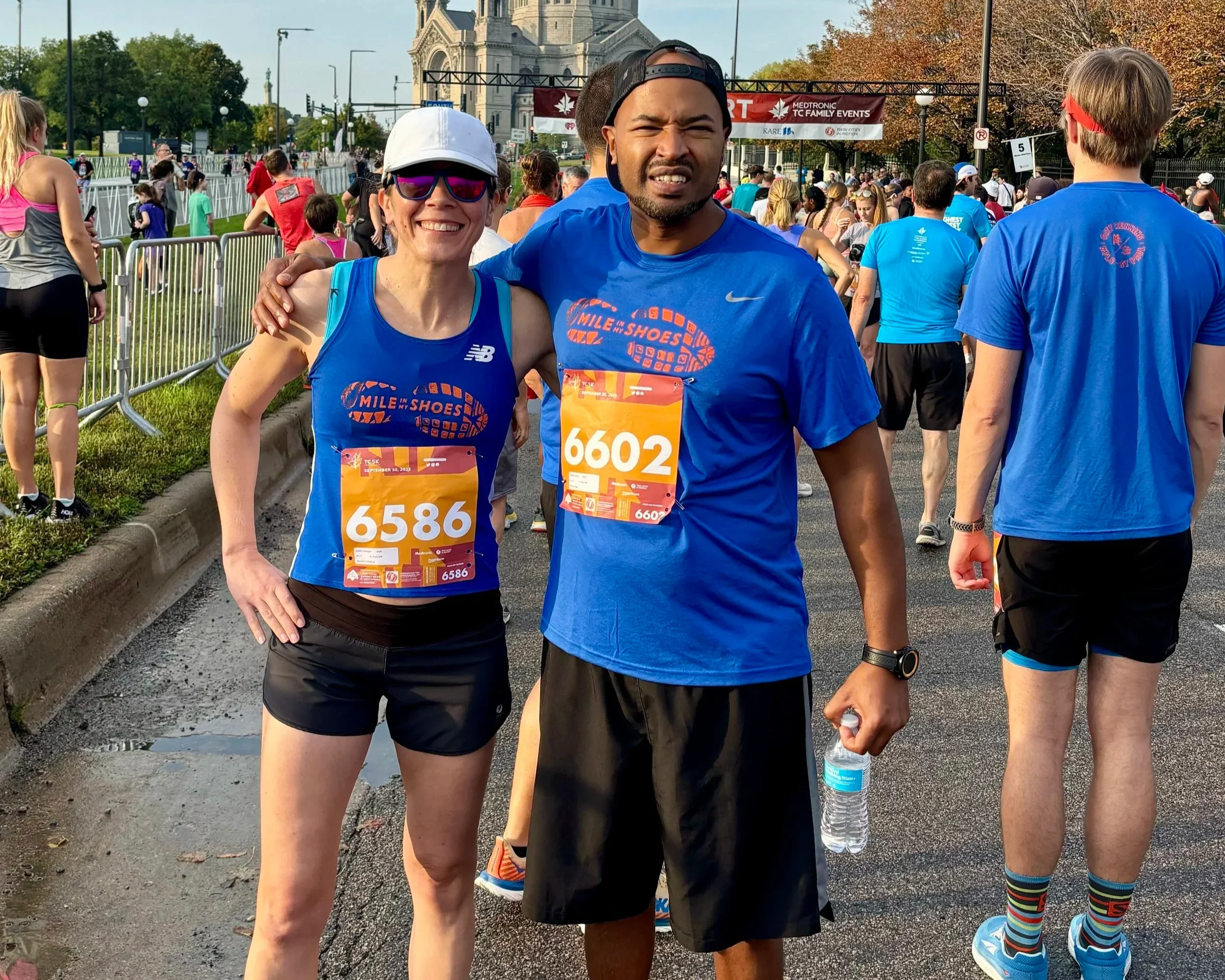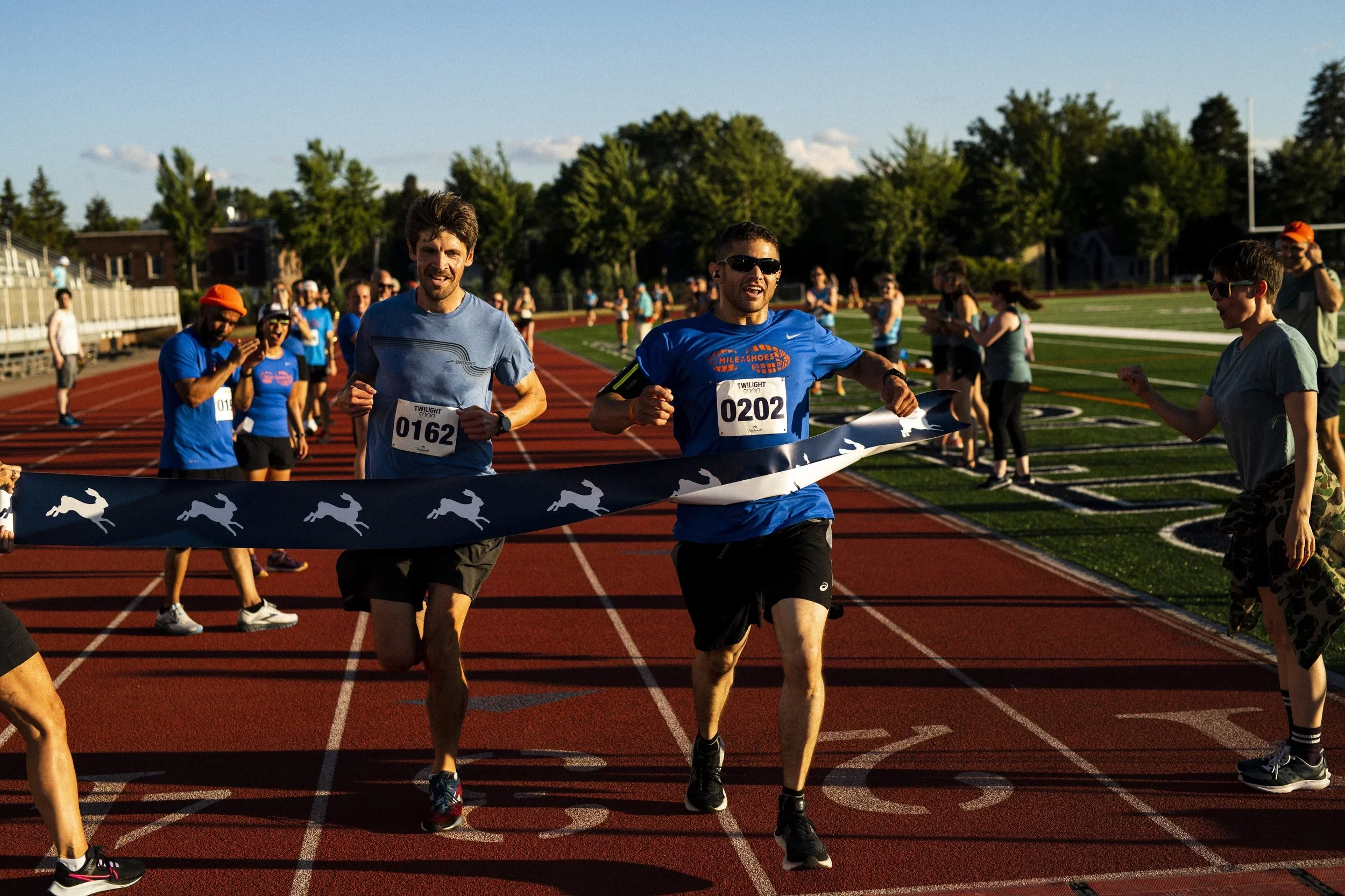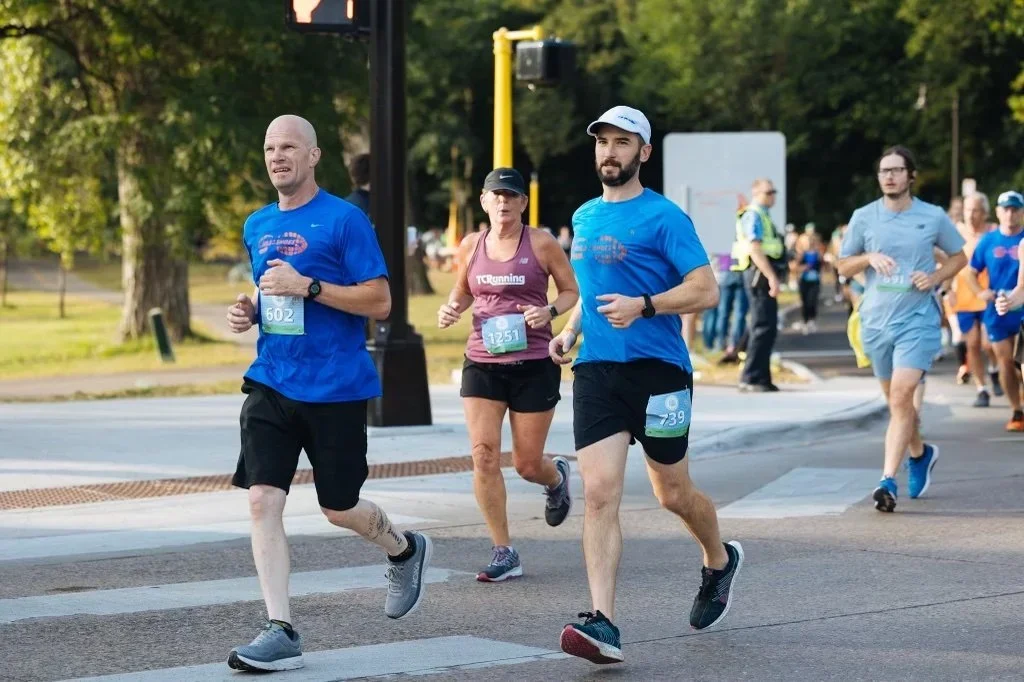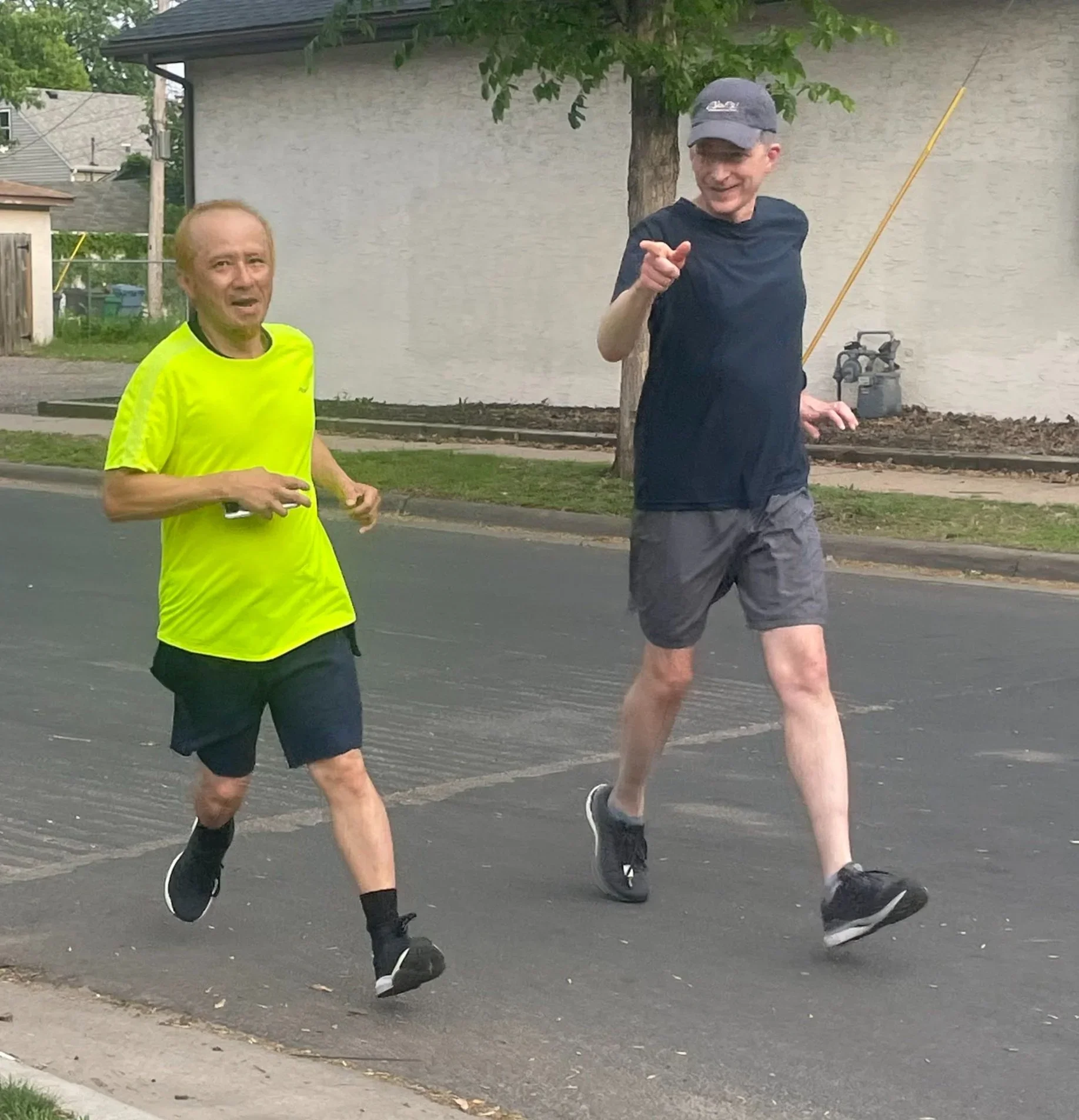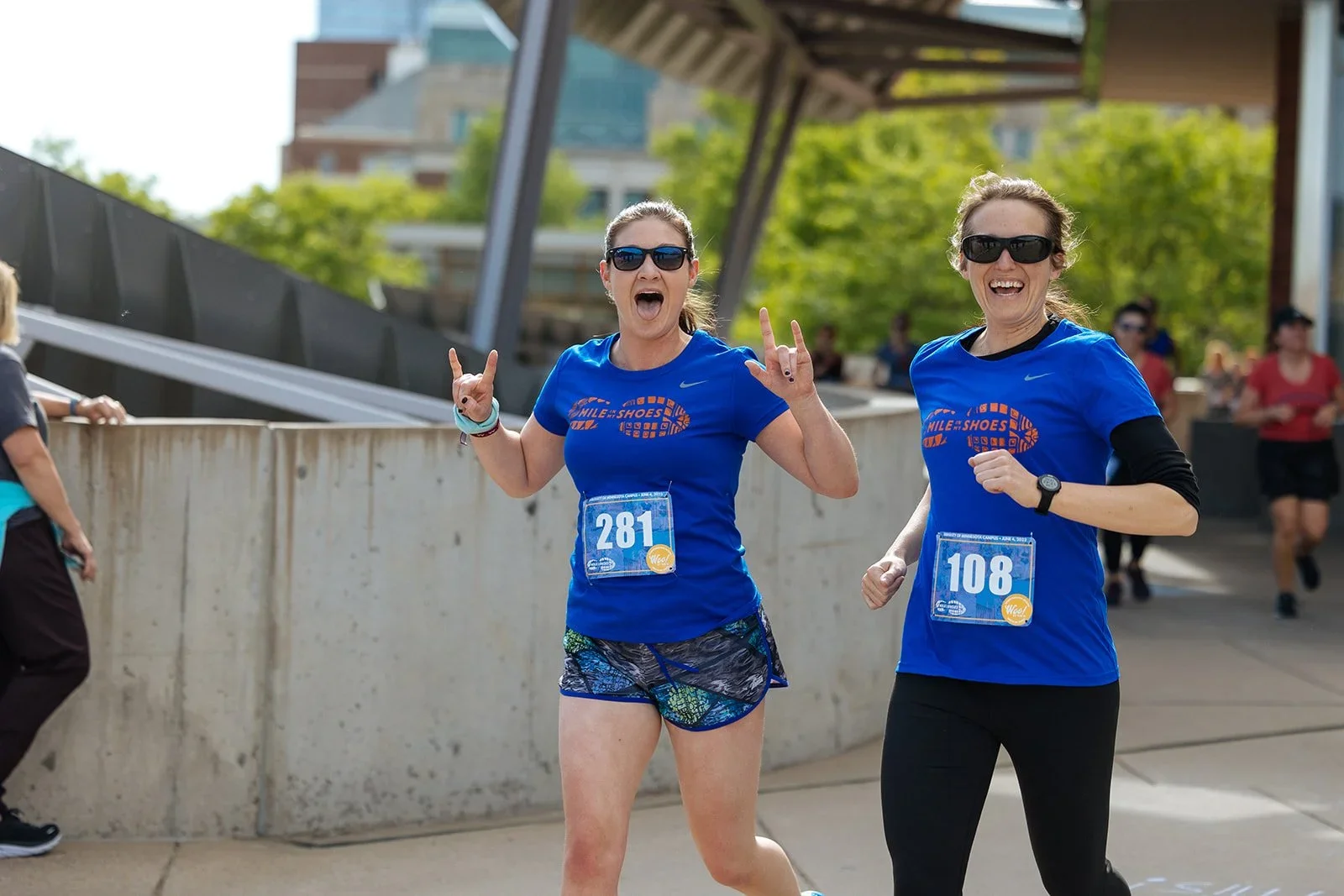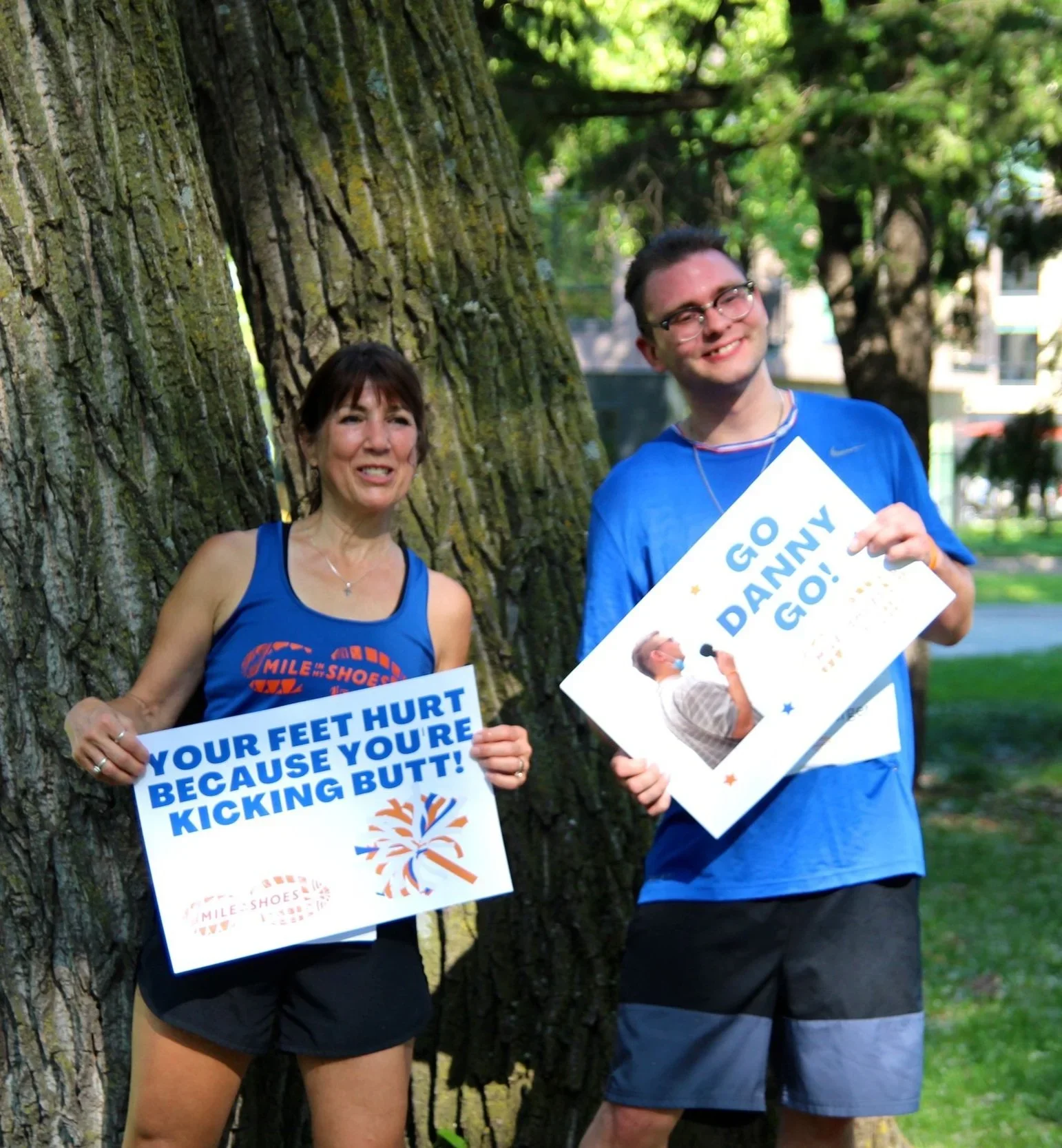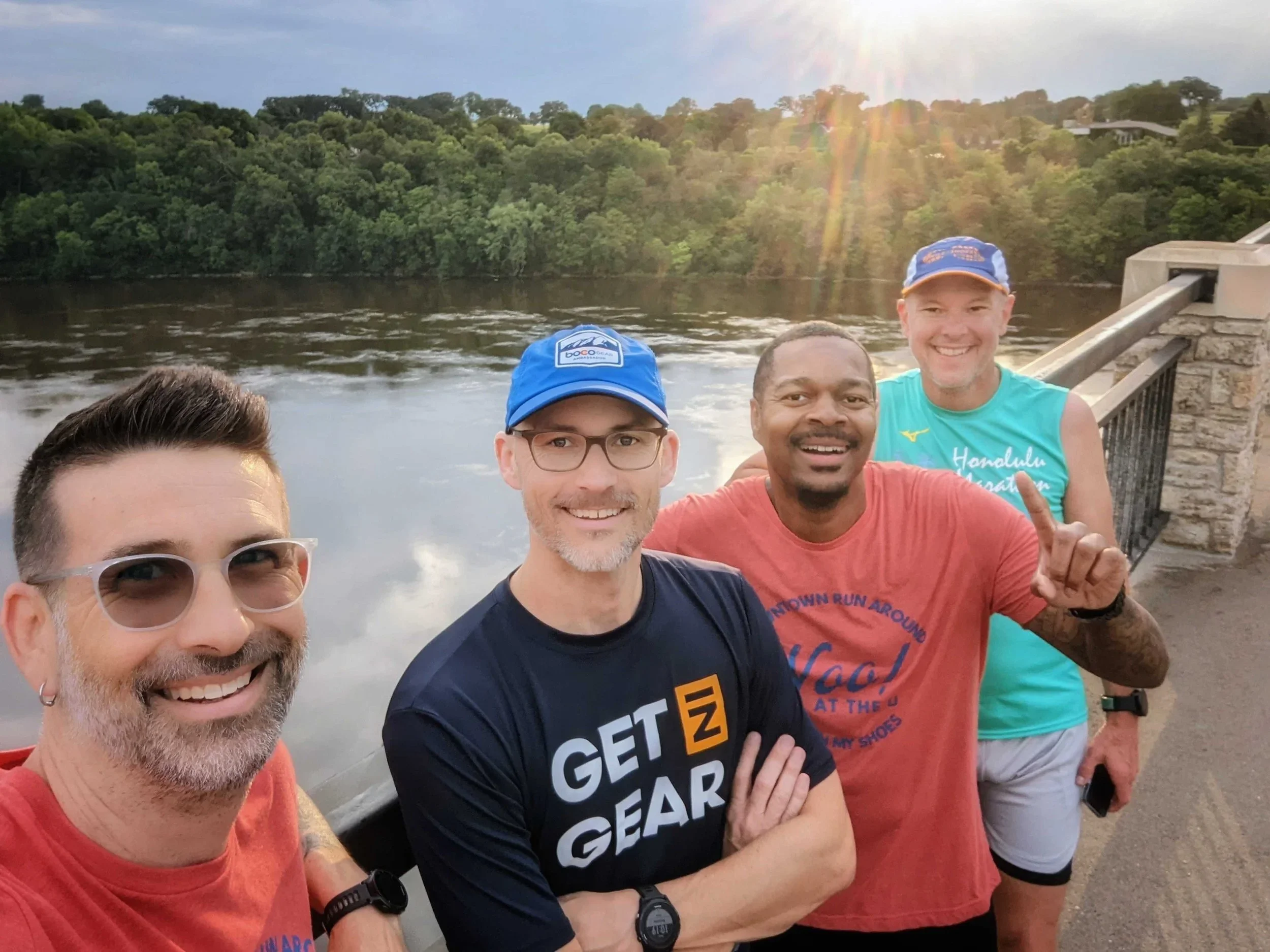Resident Members are the backbone of Mile in My Shoes.
Our Resident Members are people experiencing homelessness and other barriers who have committed to joining our Run Mentors three days a week to run towards something better. They run to get healthy, they run towards a new life for themselves. Through running they transform their lives, and the lives of everyone around them.
Meet Mike, Team Higher Ground + TC South Alumni Mentor
“When Alumni Member Mike Braun joined Team TC South this fall as a new Run Mentor, he brought with him two “relics” of his time as a Resident Member of Team Higher Ground Minneapolis over a decade ago: His MiMS wristband, an old-school version black-and-white version that reads “Every Mile Changes You” and a pair of Craft winter running gloves.
“It feels good to come back because I have been in their shoes. I can relate to them. And it feels good to give back after all MiMS gave to me,” he reflects. “You showed up for me when no one else would.”
Meet Andre, Team VOA Roseville Alumni Member
When Andre Anderson moved into VOA Roseville in August 2025, he was already a runner, having run thousands of miles while incarcerated. He also already knew the connective power of the Mile in My Shoes community. While at Lino Lakes Prison he was pen pals with Distance Crew Run Mentor Steve, was taught inside by Roseville Mentor Jen, and was given a new pair of HOKA running shoes from longtime Mentor and former MiMS program director Beth. Joining Team Roseville after 11 years of incarceration, Andre reflected on Mile in My Shoes’ role in his transition. "I haven't even seen my family yet. It's overwhelming—less than 100 hours since I left prison, and I already have new shoes, clothes, my team. It's incredible, this community: big enough to meet people, all people, and give them a seat at the table. I want to help build more of that.” Read Andre’s Story
Meet Demetrius, Team Southside Member, A Follow-up 2017 to 2025
“When we showed up at the Volunteers of America Reentry Center for men completing prison sentences back in 2017, we weren’t sure what to expect. When we asked to recruit residents for a running team, staff of the center said “Good luck!” But that first day, we walked out having signed up five men to run. One of them was Demetrius Harris. After 12 years in, Demetrius left prison having become a runner. What he didn’t have was a positive community to support him and keep him going.
“I try to be there for others the way that MiMS was there for me. That’s what MiMS stands for, and that’s what I stand for,” he shared. The habit of running before work that he developed with his MiMS team stuck - he still runs every morning at 5am before heading out for the day.
Meet Lebo, Team Sarah’s Resident Member, A Follow-up
“Waking up to be outside for a run at 6am, well, I would never have done that alone,” she says. “But it was so great for me - not just physically but mentally, even professionally. My experience taught me discipline and commitment - and that had such a long lasting impact on me.” Lebo ran for two seasons with Team Sarah’s, and then committed to an Alumni team who ran “together” through the Covid lockdowns of 2020. She would regularly pop up at Mile in My Shoes races even after there was no longer a MiMS team at Sarah’s. “When I am struggling with motivation, I remember how I ran in the freezing cold and snow and I remember that I am someone who does hard things.”
Meet Roman, Team Union Gospel Mission Resident Member
“I’ve never participated in something like this before, and I will admit I can be slow to trust. I did not want to be pitied. As Members, we want to know if a relationship is real. We come from different backgrounds and different walks of life, and trust has to happen on both sides - you have to have an open mind. I’ve never been a part of a group like this before, you know? In the past, I kept my connections to people I had business with, or who lived around me. Now, I’m opening up about my past with you all and I do feel safe to express my feelings and views but that wasn’t automatic. It had to be earned.”
Meet Wayne, Team Nokomis Resident Member
“Running with MiMS is fun! It’s great to have people that you know are there, showing up for each other consistently and it holds me accountable for getting back into running. I am just really grateful that Mike J gave me that pair of shoes. Those shoes and being a part of this group is a gift. I know I would not be out here running without MiMS.”
Meet Godana, Team Union Gospel Mission Resident Member
By light of headlamp, Matt addressed his teammates: “I am nominating Godana to be the next Team Captain because I see him coming out here every single day, and I see he is taking all this seriously.”
“I haven’t been nominated for too many things in my life,” said Godana. “So that felt really good. I’ve really been trying to work on my leadership skills, and to come out of my shell more. Being part of MiMS has really helped me in that area - getting out of my comfort zone and being around people. Usually, I don’t go to places where I don’t already know the people. Before, I didn’t really trust people.”
Meet Matt, Team VOA Roseville + Distance Crew Alumni Member
“Completing the marathon last October was hands down the most inspiring thing I’ve ever done. I’m here to say that the rush of heroin and meth are nothing like what I felt that day. Those highs end a few hours later in loneliness and shame. The marathon was the opposite - I had a warm feeling that just grew and grew. Using drugs, you see the worst of humanity - people doing unthinkable things to themselves and their loved ones. Marathon day, strangers were cheering for us and handing us water - if that isn’t the best of humankind! The positive energy was mind-blowing. Getting there was really hard, and I almost didn’t make it, but I did. And I EARNED it. And I will have that accomplishment forever.”
Meet Robbie, Team VOA Roseville + Distance Crew Alumni Member
It was a huge accomplishment to finish the race. It was a challenge. I was hurting badly and the negative thoughts about being a failure came in hard, and without my Mentor Mike J I would’ve given in and given up. I couldn’t have asked for a better pacer, partner, inspiration, support. I’m so grateful to MiMS - coming around that last corner and seeing and hearing all of you guys yelling for me, it was just amazing. It was very emotional to cross the finish line - I cried when I finished. This race, and MiMS, is a life-builder, really. I realized that I can succeed if I put forth the effort and believe in my support system - and myself. Even though my feet hurt so bad today!”
Meet Johnny, Team Nokomis Resident Member
“I started really running in 2022 to improve my mental health. I used to play soccer and actually had a soccer scholarship for college, but I ended up going into the military instead. I started running again to occupy my mind and keep it from wandering into the dark thoughts. Training for a marathon was three hours and then coming back I had to stretch and recover and that took three more hours. That was time I was able to keep my mind from wandering. I would run 15 miles from St. Paul to meet with my probation officer.”
Read Johnny’s Story
Meet Bill, Team Southside Resident Member
“I think we get conditioned from being on the inside that our opionions don’t matter, we are less than, the dregs of society, all stuff we hear from the correctional staff, directly or indirectly. I am here to tell you that your opinion does mater, you matter, you are all good men.”
Read Bill’s Story
Meet Bri, Team Challenge Resident Member
“When I got to Teen Challenge, it took a long time to believe that people would want to be my friend. I joined Mile in My Shoes because I didn’t have a healthy relationship with working out, I was very unkind to my body and I was very unkind to myself, overall. During MiMS runs I learned to talk through things. I never used to go on runs and talk with people! I thought, absolutely not. But through it, I learned that I could make friends that aren’t addicts. It was the first time that I tried to have a real conversation with someone who didn’t live the same life that I did.”
Read Bri’s Story
Meet Byrd, Team VOA Roseville Member
“I ran a bit in prison but always just a few miles. When I started running with this team, I was struck by the camaraderie right away. But more than that, this team gave me a sense of something new - a sense of a new way of living. For the half [marathon] I ran with Glenn and Kate, and did you know they are scientists?? And we were cool with one another and I’m like whoa, this is NOT who I would’ve been friends with before. This is completely different for me.”
Read Byrd’s Story
Meet Danny, Team Sally + Distance Crew Alumni Member
Alumni Member Danny showed up to the MiMS Distance Crew meeting spot with a smile, but also some uncertainty. A recent injury was causing some nerves - he was training with his team for the Twin Cities Marathon, would he be able to complete the mileage? Completing a marathon had been his dream for a year, ever since completing the City of Lakes Half Marathon with his Team Sally teammates in 2021. Now that dream was close to being realized, if he could just be smart about his training and keep himself healthy. But being smart about his health is a pretty new practice for Danny. In fact, up until last spring Danny had been a daily drug or alcohol user for 10 years - since he was age 17.
Read Danny’s Story
Meet Antonyo, Team VOA Southside Member
“Mile in My Shoes has been a big change for me. Not just the running, but being around people who really don’t understand what it’s like to be me or be from where I am from - but who want to know me. I love running with the team because it’s all these professional people who care and don’t judge. I mean, what makes Run Mentors wake up in the morning and say “Let’s see if we can get some convicts out here to run with us?” Y’all treat everyone the same. You don’t just give some people hugs, you give every person hugs.”
Read Antonyo’s Story
